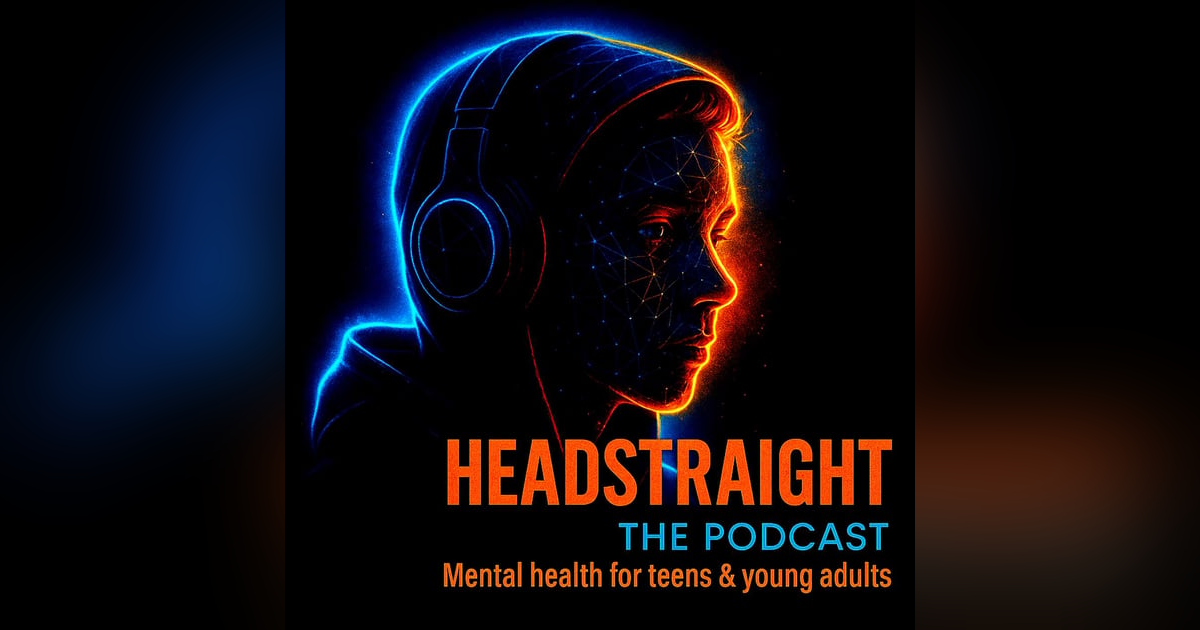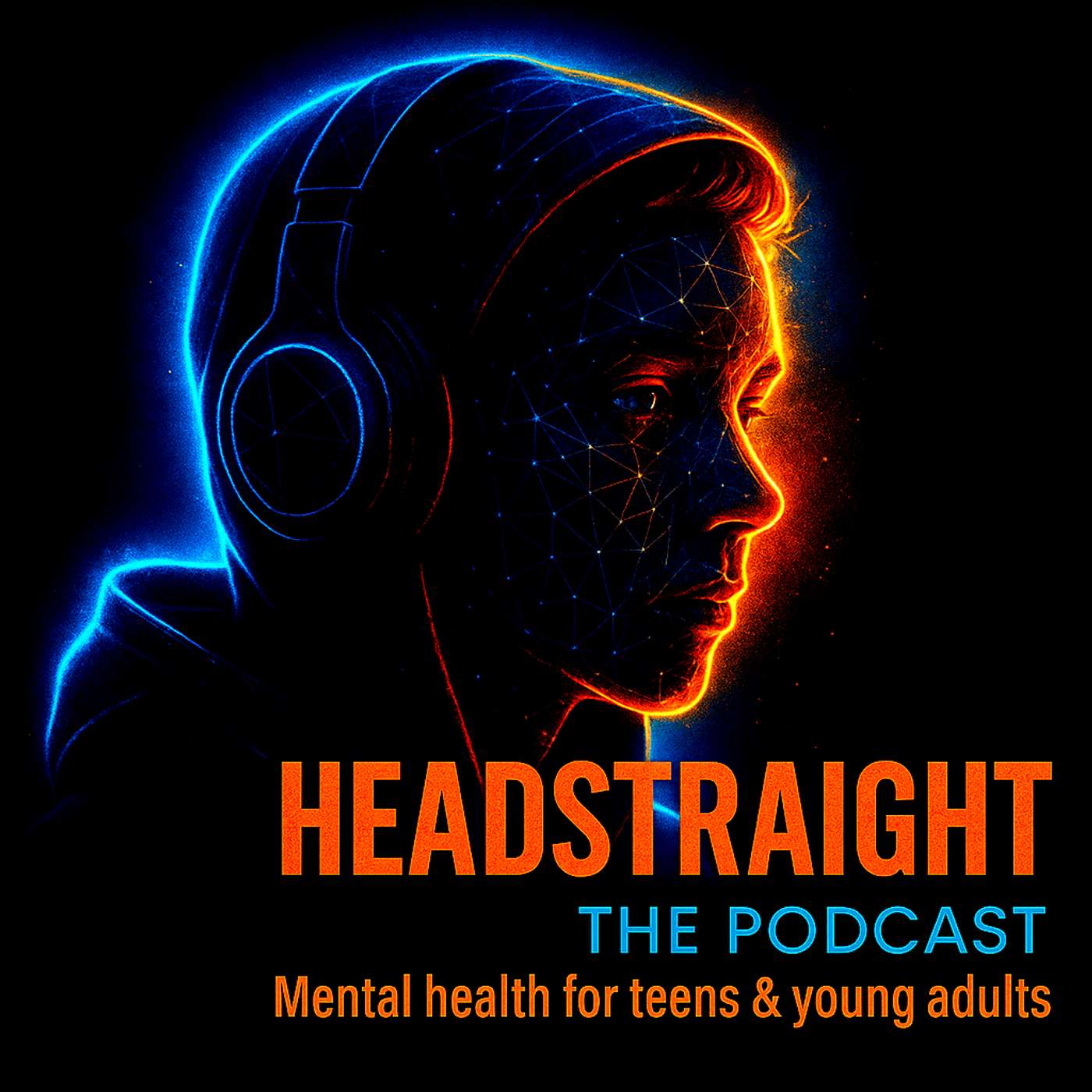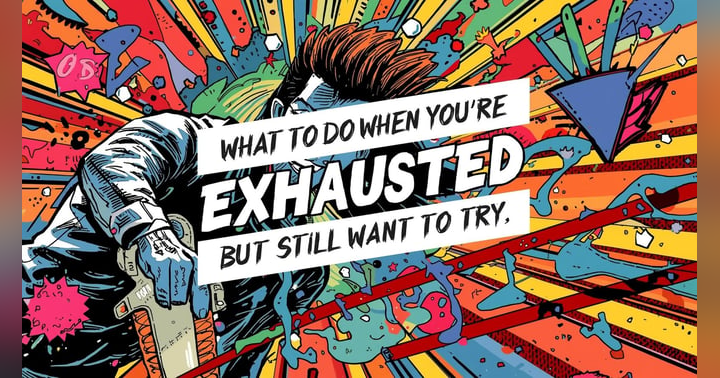Too Tired to Care? Here’s How to Keep Moving When You’re Done


In this episode of Headstraight, we dive deep into teen mental health by exploring the realities of burnout and emotional exhaustion that many teens and young adults face. If you’re feeling drained, struggling with motivation, or overwhelmed by constant self-doubt, you’re not alone. We discuss how these challenges impact emotional wellbeing and offer practical guidance on how to protect your mental health, set healthy boundaries, and make better choices even when life feels tough.
Mark Taylor shares real talk mental health insights that emphasize rebuilding teen self-esteem through manageable routines, lowering unrealistic expectations, and finding small wins that make a big difference. This episode offers honest support for teens navigating stress, guilt, and mental health struggles without shame.
Come listen for expert tips on teen mental health support, emotional resilience, and how to stay motivated during difficult times. This is essential listening for anyone looking to understand and improve their mental wellbeing as a teen or young adult.
Want the Cheat Sheet? Click on the Link or copy and paste the following into your browser:
https://docs.google.com/document/d/1P5h3Ij9begOSaAol3BQFdDlTp1EwupNl/edit?usp=sharing
Got something to say? - come send me a message at www.headstraight.co.uk/contact/
or send me a voice note at www.headstraight.co.uk/voicemail/
Click here if you want more info about the host
If you need more information about helplines, services or what do to if you're in a crisis, take a look at our resource page: https://www.headstraight.co.uk/resources
Click here to view the episode transcript.
Mark:
My name's Mark, and you're listening to Head Straight. Hello, you lot, and welcome back. Now let's take a look at it. You've been doing the work. You've pushed yourself through all of the hard stuff, the fear, the guilt, and the change, and you started to make some real shifts.
Mark:
But now everything's just starting to feel really heavy. Now you're not avoiding the work. You're not lazy. You're just exhausted. Your brain's foggy.
Mark:
Your motivation's tanked. And even though you want to keep going, part of you just wants to lie down and disappear for a while. And here's what most people won't say. That's not weakness. That's your body waving the white flag because there's a point where pushing harder stops being brave and starts being self destructive.
Mark:
Now this episode is for those moments, the ones when you know what to do, but you just don't have the energy left to do it. We're gonna break down how to keep moving without falling apart and how to hold yourself together in ways that actually last. Now the first thing that you need to know, burnout isn't just about work. It's emotional. Because most of us picture burnout as working eighty hour weeks, studying all night, or juggling five deadlines at the same time.
Mark:
But emotional burnout, well, that's just sneakier. It comes from constantly managing your own inner world without a break. And here's what it looks like. Pretending you're fine when inside you're falling apart. Holding space for others, but never being held yourself.
Mark:
Pushing through personal change without stopping to breathe. Now this emotional load piles up, even when your external life looks manageable. Now eventually your systems can't cope and you start feeling numb like nothing matters, irritable over small things or disconnected from yourself like you're on autopilot. And here's the key. That's not a personal failure.
Mark:
That's your nervous system doing exactly what it was built to do to protect you from overload. Now maybe this would be a good place to stop and ask yourself a question. What parts of your emotional world have you been carrying in silence? And what's been quietly wearing you down? Now I want you to understand this fatigue isn't just being tired, it's being depleted.
Mark:
And this isn't just about needing a nap, It's about decision fatigue. When your brain's out of emotional fuel. Every time you talk yourself into getting out of bed, navigate a tricky conversation, or overthink what someone meant by an eye roll, you spend energy, and your system keeps score. Eventually, even simple tasks feel impossible. You start forgetting things, ghosting people or zoning out.
Mark:
It's like your brain switches into low power mode. Now, what's important to understand is this isn't a lack of discipline. It's a brain's way of protecting itself after spending too long in survival mode and trying to shame yourself out of that state. That's only going to make it worse. What you need isn't more motivation.
Mark:
It's a new approach. And this is where routine comes in. Firstly, let's just revisit a myth that we've already busted. If I really cared, I'd be more motivated. Wrong.
Mark:
Motivation is a feeling and it comes and goes like a dodgy signal. You can't rely on it, especially when you're depleted. What actually gets you through is routine. The small systems you set up when you do feel clear headed, so they carry you through when you don't. You don't brush your teeth because you're pumped on dental hygiene, you do it because it's built in.
Mark:
Now just imagine if self check ins felt automatic, if stretching for two minutes was a non negotiable, if emotional regulation was a habit not a chore. That's how to build a safety net that doesn't collapse when you do. Now pro tip don't wait for the spark. Build a rhythm that you can lean on when everything else starts to fall apart. So now let's think of something else.
Mark:
I want you to lower the bar, but not drop it. Now you've heard about progress over perfection. Yeah? But let's go deeper than that. When you're running on fumes, aiming for your usual best is just going to burn you out.
Mark:
And this is where bare minimum comes in. This isn't about giving up. It's about adapting. So for example, if you're looking at exercise, if a thirty minute workout feels impossible, try five squats whilst waiting for the kettle. Writing your diary.
Mark:
If you can't do ten minutes, then just write one sentence. If cooking feels too much, grab something with protein and fiber. It doesn't need to be a masterpiece. This is survival mode self care. Not treat yourself kind of stuff, not aesthetic, just real functional support for your depleted state.
Mark:
You're not failing, you're preserving. You're adjusting the plan so that you can stay in the game. So now let's look at some tools that can keep you moving gently. The first tool is the bare minimum plan. Now what I want you to do is to write down your ideal habit.
Mark:
Now ask yourself, what's the smallest simplest version of this that I can do? Once you've got that, that's your fallback plan. And it's not about low standards. It's about sustainable pacing. Next thing to look at is energy budgeting.
Mark:
So visualize your energy like coins. Now you only get so many per day. So ask yourself, what's draining me? And then ask yourself, what's coming on around me that drains me? Who am I spending on with no return?
Mark:
What is it that refills me realistically? And then make a budget. Prioritise. Say no where you need to. And you know what?
Mark:
This is boundary work with yourself. The next tool is looking at tiny wins. Now people really underestimate this. So, watered your plants? That's a win.
Mark:
Answered that one overdue message? Another win. Got out of bed when you didn't want to? Massive win. Now these aren't small.
Mark:
They're proof that you're still showing up for yourself. Next one we can take a look at is nervous system resets. When your brain is screaming, I can't, start with your body. You could try the four, seven, eight breathing technique. You could try a big stretch with your arms overhead or stand outside, even if it's just to feel the air in your body.
Mark:
Now, this isn't fixing the problem. You're calming your system so that you can start to think clearly again. Now the last part before I set you your challenge for this week is redefine what success looks like right now. Now you've been taught that success is about intensity, high performance or all or nothing, but real success, it's about sustainability. Because sometimes success is making it through the day without quitting.
Mark:
Success is about not spiraling after setbacks. Success is showing up at 30% instead of disappearing completely. Now, you don't need to be at your best to keep growing. You just need to be your honest self and move from there. So let's take a look at your challenge for this week.
Mark:
First thing I want you to do is to keep it simple and doable. So first part is to create a bare minimum plan. What does your survival mode version of growth look like? Also want you to audit your energy budget. Where are you overspending emotionally?
Mark:
And where can you cut back? I also want you to track one tiny win daily, just one. I want you to log it, but more importantly, to celebrate it. And make sure that you practice a daily reset. Breathe, move, pause, even if it's just for one minute.
Mark:
And I want you to repeat this truth daily. I'm not failing. I'm adapting. So if you're struggling and you need some guidance with it this week, the link for the cheat sheet for this episode is available in the description. So go get it.
Mark:
So let's take a look at what's coming up next time. In the next episode, we're going to flip the script and get into self advocacy. We're going to look at how to become the one person who's always in your corner, even when you're brainstorming insults and doubt your way. Because when life gets loud, the voice in your head, that's the one that matters the most. Now you're not weak.
Mark:
You're wise enough to slow down, and that's power. So let's see you next week.













